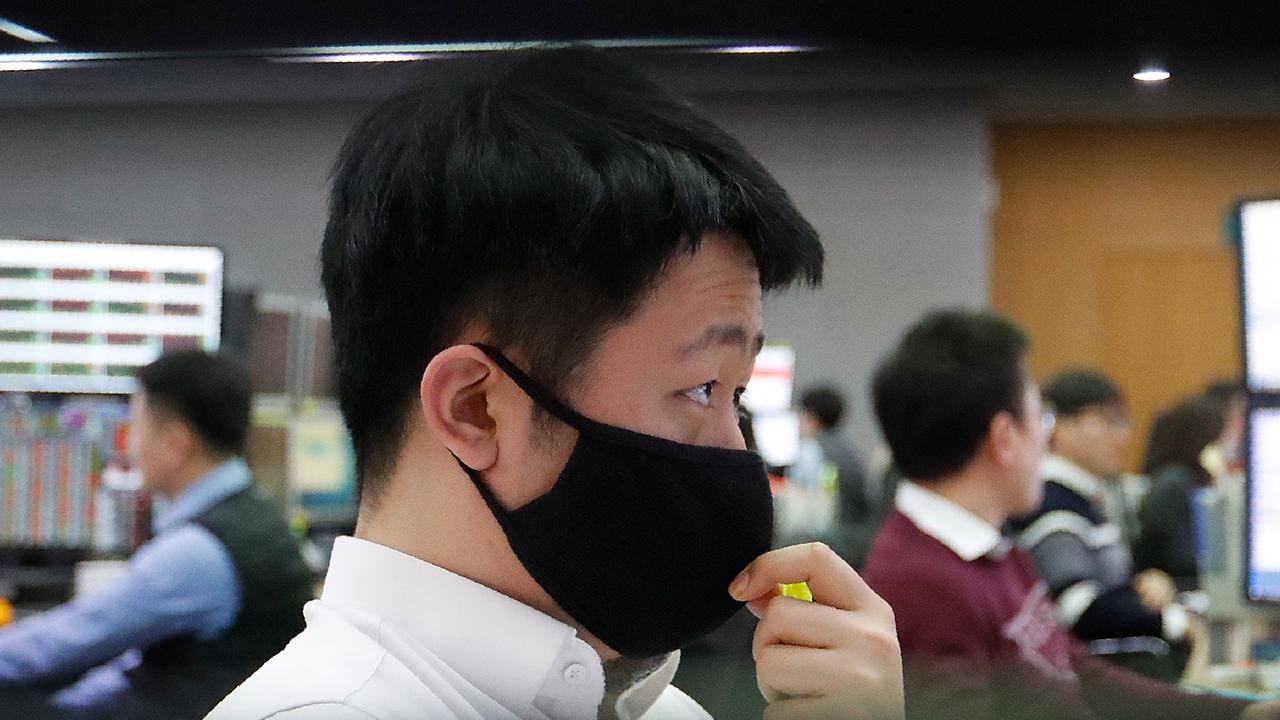Dow closes in bear market amid volatile session
A bear market is a 20 percent drop from the most recent high
All three of the major averages tumbled into a bear market Wednesday, down 20 percent from their February peaks, after the World Health Organization declared the new coronavirus outbreak a pandemic and Congress wrangled over an economic stimulus plan.
The Dow, which fell by as many as 1,689.84 points, was the only index to close in bear-market territory as the S&P 500 and Nasdaq bounced off their worst levels of the session.
For the session, the Dow lost 1,464.67 points, or 5.9 percent, while the S&P and Nasdaq Composite were down 4.9 percet and 4.7 percent, respectively.
| Ticker | Security | Last | Change | Change % |
|---|---|---|---|---|
| I:DJI | DOW JONES AVERAGES | 50135.87 | +20.20 | +0.04% |
| SP500 | S&P 500 | 6964.82 | +32.52 | +0.47% |
| I:COMP | NASDAQ COMPOSITE INDEX | 23238.66991 | +207.46 | +0.90% |
“Logic would probably dictate just to get out of the way and let the tanks roll down the field, and stay in your fox hole and not stick your head up because there is no question that cash is king,” Ted Weisberg, president of Seaport Securities, told FOX Business’ Liz Claman from the floor of the New York Stock Exchange. "But if you’re long stocks and own good stocks, you just kind of have to hunker down and wait for the dust to settle.”
The Federal Reserve did its part to boost liquidity, increase its daily overnight repurchase agreement (repo) operations to at least $175 billion for the next month. That is an increase from the $150 billion announced Monday.
President Trump, in a tweet, promised more assistance. "I am fully prepared to use the full power of the Federal Government to deal with our current challenge of the CoronaVirus!" he tweeted.
Stocks, which traded lower all session long, saw selling pick up after Tedros Adhanom Ghebreyesus, director-general of the WHO, called COVID-19 a "pandemic," noting there are more than 118,000 cases worldwide which have resulted in 4,291 deaths. Ahead of the announcement, the major averages were under significant pressure after reports said House Majority Leader Steny Hoyer, D-Md., balked at some of the economic stimulus initiatives being floated by President Trump.
In corporate news, Boeing led the Dow's dip, closing down 18.2 percent, on reports it is preparing to draw on its $12 billion line of credit established to give the planemaker financial flexibility as it deals with the fallout from the Max Jet crisis.
Airlines were pummeled after American, Delta and United on Tuesday cut more domestic and international flights amid a wave of cancellations. Cruise operators and online travel-booking companies were also hit hard.
Related to transportation, oil tycoon Harold Hamm told FOX Business that the Saudis and Russians are manipulating the oil market, a move that called "illegal" and vowed to fight back.
Hamm's comments come as volatility continued in the oil market, with West Texas Intermediate crude oil sinking 4 percent to $32.98 a barrel. The plunge in oil prices weighed on majors Exxon Mobil and Chevron, as well as Continental Resources and Chesapeake Energy, which announced it was seeking shareholder support for a reverse stock split.
Elsewhere, Nike shares fell after rivals Adidas and Puma warned their sales in China took a hit due to COVID-19.
Meanwhile, some pharmaceutical companies looking for COVID-19 treatments rocketed higher.
Banks were also under pressure as the one-two punch of weaker economic activity due to COVID-19 and plunging oil prices remained a drag. CEOs from Wall Street's biggest firms met at the White House to discuss the financial-market fallout. Bank of America CEO Brian Moynihan said U.S. banks are well-capitalized.
TRUMP TALKING WITH WALL STREET CEOS AT THE WHITE HOUSE
U.S. Treasurys fell, causing the yield on the 10-year note to climb to 0.846 percent. The yield was down more than 5 basis points earlier in the session.
European markets fell despite the Bank of England announcing an emergency rate cut of 50 basis points, lowering its key interest rate to 0.25 percent. Britain’s FTSE finished down 1.4 percent while Germany’s DAX and France’s CAC lost 0.4 percent and 0.6 percent, respectively.
CLICK HERE TO READ MORE ON FOX BUSINESS
Asian markets were lower across the board with Japan’s Nikkei falling 2.3 percent, China’s Shanghai Composite shedding 0.9 percent and Hong Kong’s Hang Seng sliding 0.6 percent.





















